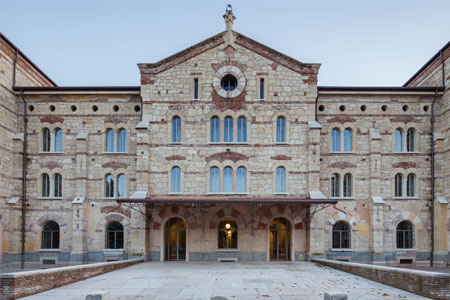Course not running
- Course code
- 4S00391
-
Name of lecturer
-
Elisabetta Lamarque
- Number of ECTS credits allocated
-
9
-
Other available courses
-
- Academic sector
-
IUS/09 - PUBLIC LAW
- Language of instruction
- Italian
- Location
- VERONA
- Period
-
2nd semester dal Feb 19, 2007 al May 26, 2007.
To show the organization of the course that includes this module, follow this link  Course organization
Course organization
Lesson timetable
Learning outcomes
The discipline covers both Italian Constitutional Law, seen also in the perspective of European integration, and General Administrative Law, with specific reference to the basics of Economic Public Law. The main goal is offer to students the knowledge of basic principles of the two aforementioned disciplines and, more generally, the instruments to tackle and to master the whole legal phenomenon in future undergraduate and postgraduate studies, as well as professional activity. For this purpose, some in-depth sessions will be organized on core topics for the education on economics, in order to offer some examples on use of research instruments and of individual study.
Syllabus
1. Introduction.
The Law and the State. The Constitution. Forms of State and Forms of Government. Notices of Italian constitutional history. The crisis of State sovereignty. The process of European integration.
2. The Sources of the Legal System.
The concept of source. The relationships between sources. The Constitution and the constitutional laws. The Statute and statutory acts, the regulations of the executive. The regional sources. The customary law. The national sources in the interaction with International Law and EC-EU Law.
3. The State-Apparatus.
The public functions: political address, legislative, administrative, jurisdictional. The constitutional organization: the electoral body, the Parliament, the Government, the President of the Republic, the Constitutional Court. The organs of constitutional relevance and auxiliaries of constitutional organs.
4. The State-community.
The territorial autonomies. The autonomies of individuals and social bodies.
5. The State `administrator'.
The constitutional principles relating to Public Administration. The administrative proceeding. The administrative acts and measures.
6. The State `regulator'.
The ‘economic Constitution’. State and economy between European Union and globalization. The role of independent administrative Authorities.
Assessment methods and criteria
The exams will be carried out as oral exams.
Teaching aids
- Documents
-








